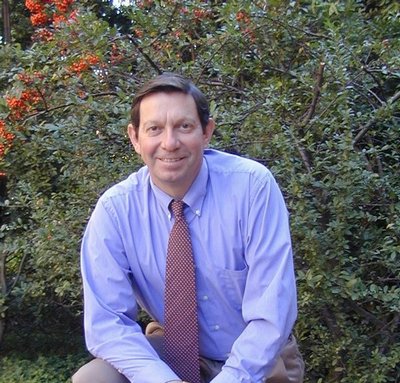May 11, 2006
UW says goodbye to David Hodge after 30 years
Perhaps it was inevitable that as dean since 1998 of the UW’s largest college , as an administrator with an excellent track record for fundraising who also has led the effort of transforming education within the college, David Hodge would be seen as presidential material. But it still comes as something of a shock to lose someone who has been on the UW campus for more than 30 years.
Hodge, dean of the College of Arts and Sciences, has accepted the presidency of Miami University in Oxford, Ohio, effective July 1, ending a career at the UW that began in 1975, when he was appointed assistant professor of geography. The UW was his first faculty position after receiving his doctorate from the Pennsylvania State University.
His colleagues here view his achievements at the UW as strong indicators of his future success at Miami.
“When you have a really good dean of Arts & Sciences,” said UW President Mark Emmert, “you start to look over your shoulder every now and then to see who else might be noticing and trying to lure him away. Of course, this is part of the academy and how university presidencies get filled. It is a great tribute to David and to his superb capabilities as an academic leader. It is also a tribute to the quality of leadership we are able to nurture at the University of Washington. David has been a change-agent and an inspiring leader, not only as dean but as department chair before that. It will be hard to fill the void he leaves behind, but we are very proud of him and wish him wonderful success in his new role at Miami.”
Julie Stein, director of the Burke Museum and former divisional dean in the college, says it is Hodge’s personality that made him successful here. “He knew all the faculty in the college. He taught a class even as the dean so he could interact with students.” She says his infectious enthusiasm and his inclusive approach to problem-solving make him enjoyable to work with.
In interviews at Miami, Hodge talked about how well his experience at the UW prepared him for the new position. Indeed, the College of Arts and Sciences has more students than all of Miami. The complexity of the UW environment, and the great degree of autonomy that is granted to deans, have given him a wealth of opportunities upon which he will draw in his new position.
“David Hodge has been a brilliant leader,” says Ron Irving, divisional dean of natural sciences. “I was one of those people that initially didn’t quite believe the idea of a mission for a college of arts and sciences was meaningful. Historically, colleges such as ours don’t have a distinct identity. But David’s integrated vision of the liberal arts was something in which I came to believe. He involved all corners of the college in the process of strategic planning. The result has been to give this college a strong identity, especially with external audiences.
“He has led the effort to transform the college’s core offerings in the sciences and the arts, bringing to life the concept of active learning, and investing significant resources in the transformation initiatives. In his hiring of chairs, center directors and people in the dean’s office he chose individuals who were instrumental in moving the college forward. I believe that his ideas have allowed us to make the best use of what a great public research university can offer in teaching its students.
“David has also made diversity a major focus, emphasizing the key role of faculty in both modeling and leadership. He has invested time and resources in this issue, and has spoken eloquently about it. I believe he’s made a major difference.”
Hodge’s success in fundraising is something he will need to replicate at Miami. As dean, he has increased the number of professorships and endowed chairs from 18 to 102, and has led the college’s effort to raise $200 million as part of the Campaign for Washington.
Hodge has said that he finds fundraising inspirational, because it provides him with a different way of thinking about the institution. He characterizes fundraising as the telling of good stories. “If I don’t have good stories to tell, then I’m not going to be very effective at fundraising.” The stories about the University that make it seem special, that make the UW students appear different, are the stories that move potential donors, he says.
In his time at the UW, he was known as a skilled but demanding teacher. When he won the Distinguished Teaching Award in 1990. one student’s nominating letter said, “I wouldn’t have missed this course for anything in the world, and nothing in the world would ever make me take it again.”
Hodge has said that one of the things that made him a good teacher is the same skill that he uses every day as an administrator — the ability to see the world through another person’s point of view. Just as he tried to see the world through the eyes of his students in the classroom, now he tries to see issues through the eyes of a faculty member, a student or an alumnus. And, soon, through the eyes of a Board of Trustees at Miami.
“I believe that David Hodge will become a compelling president,” says Irving.

